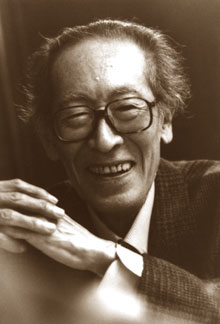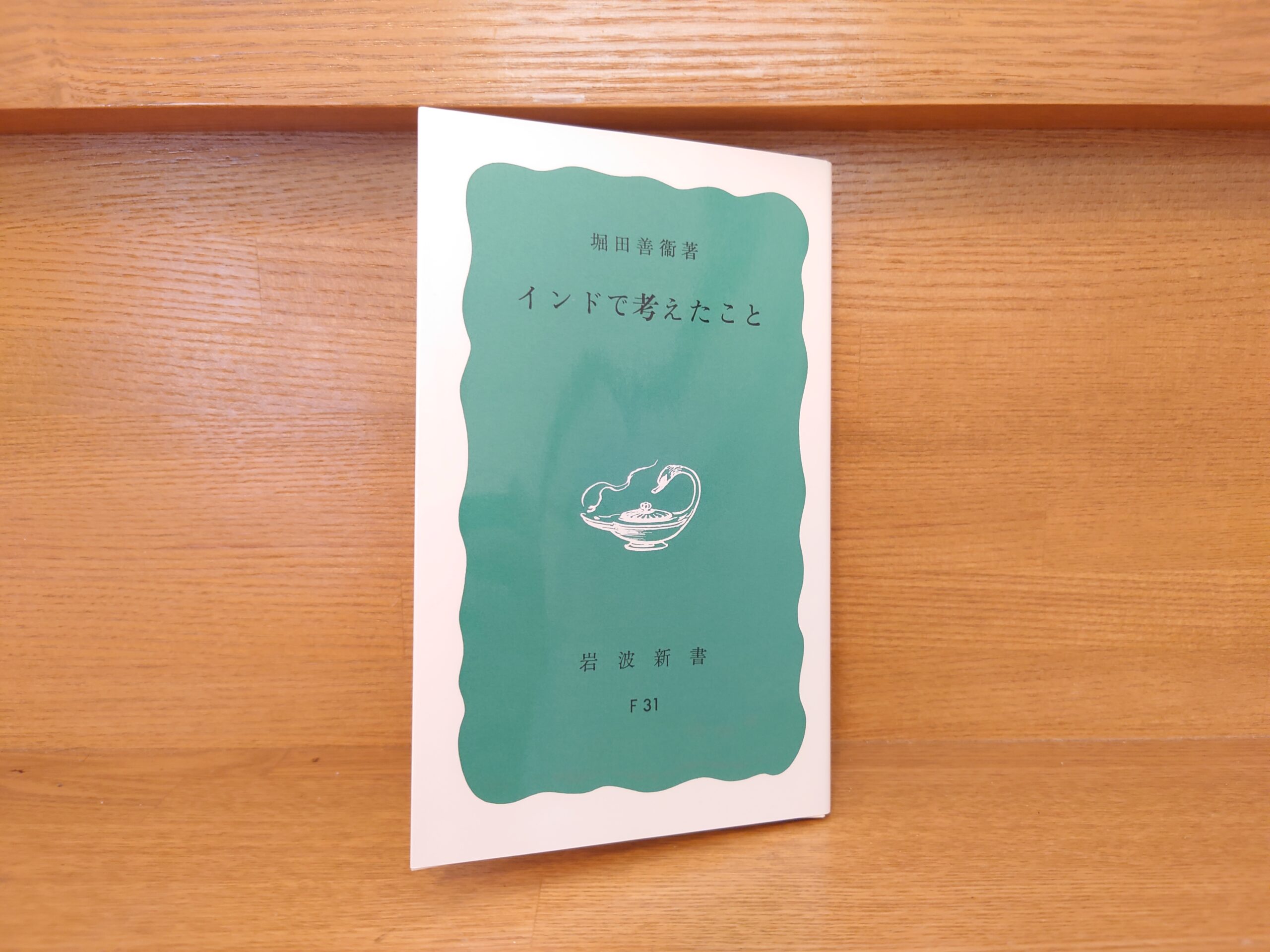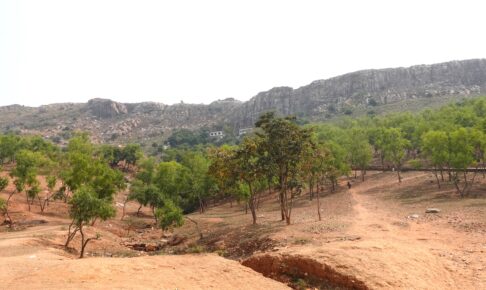Yoshiemi Hotta, "What I Thought in India" - India has an "oopsie face"... A masterpiece travelogue of India by one of Japan's leading writers!
The book introduced here is "What I Thought in India" by Yoshie Hotta, published by Iwanami Shoten in 1957.
Let's take a quick look at the book.
In our travels throughout Asia, we are compelled to feel something in common with ourselves and to reflect on the fate of modern and contemporary Japan. A journey to India, where people are struggling to carve out a new future while carrying the burden of an old civilization. This thought-provoking travelogue by a writer with a keen sense of modernity is at the same time a critique of civilization for modern Japan.
AmazonProducts Page.

Yoshie Hotta Yoshie Hotta [1918-1998] Special Web site to commemorate the reissue of Yoshie Hotta's "The Times and Humanity.
Yoshie Hotta is that director Hayao Miyazaki,
When people ask me what influenced your films, I have no choice but to answer, "Zen'e Hotta. Of course, I have been influenced by Osamu Tezuka and many others, but at the core of my work is Zen-e Hotta.
Shueisha, by Natsuki Ikezawa, Shinobu Yoshioka, Shigeru Kashima, Hojiro Ohtaka, Hayao Miyazaki, edited by Takashi's Country Museum of LiteratureReading Zen'e Hotta: A Compass for Understanding the WorldP161
He is such a person that he stated.
And this "What I Thought in India" is a must-read travelogue of India for anyone interested in India.
Zen'ee Hotta states the following about this book in his "Introduction".
This memoir is an attempt to write down in a nutshell, without any particular context, what I felt and thought, and what India made me feel and think, during my stay in India to attend the First Asian Writers' Conference from the late fall of 1981 to the beginning of 1982. It is not a smart travelogue, nor did I make any effort to develop a theoretical framework. It will probably be very ill-formed and out of order, but that can't be helped. I would be happy if you could read it as a small dialogue between an ill-mannered novelist and India, Japan, and Asia.
Iwanami Shoten, Yoshiemi Hotta, What I Thought in India, p. ii
The story in this book takes place in India from 1956 to early 1957, nearly 70 years ago. This was a time of rapid economic development in postwar Japan, but also a time of social and ideological turmoil, including security issues.
At that time, it was almost impossible for the average person in Japan to travel abroad. In such a situation, India was especially attractive to Japanese people. This book may be said to be the one that strongly instilled a sense of curiosity and longing for India in the Japanese people.
About 10 years after the publication of this book, Yukio Mishima also visited India and described his experiences in his last major work, "The Sea of Fertility. India, after all, is a place that never ceases to inspire writers.
And the book has not faded at all nearly 70 years after its publication. It is extremely interesting. I read it many times before my trip to India.
Anyway, this travelogue is easy to read!
And not only are there deep insights into the depths of the human psyche, but there is also a sprinkling of humor that will make you chuckle. This is travel writing at its finest.
I would like to share some of the most memorable passages here.
For those who are inclined to think about the more fundamental and fundamental aspects of human beings, their lives, culture, and civilization in some sense or genre, I recommend that they go to India. However, I do not recommend a trip to India to those who want to live their lives in a place where things are at all right, and where they can get by on the sidelines with a good sense of humor. If the latter seriously encounter the greatness and misery of India, they may overturn such a vague view of life, and if their work is in any way related to the spirit, their business may be temporarily shut down.
Iwanami Shoten, Yoshiemi Hotta, What I Thought in India, p. 68-69
Go to India.
I am sure that there must have been quite a few people who were encouraged by these words to depart.
I guess you could say that I am one of them in a way. It is a very magical word, isn't it?
And the following passage also left a very strong impression on me.
Indeed, there is nothing ideological or religious about India,just about everythingThis is what made me, a person who is not accustomed to such diversity of existence, terribly tired during my stay in India. (I was very tired during my stay in India.)
I do not envy those who have a religion. I have been told this by some people, but when I went to temples of Hinduism, Jainism, Sikhism, Islam, etc., I was struck by the severe expressions on the faces of the people praying. They looked much more frightening than the Chinese or we do. Some might call their harshness and nervousness a sign of stupidity. It may be true that these things are holding back the progress of society. But I don't want to argue about that. I am not even an atheist, so I am not qualified.
There are many ways to describe monotheism, polytheism, pantheism, transcendentalism, non-transcendentalism, etc., but the ominous look on their faces told me that there is a religion, apart from being a transcendent or non-transcendent god, which is a scary reality.
Iwanami Shoten, Yoshiemi Hotta, What I Thought in India, p. 181-182
Indian."Scary face."...
This is the phrase that has left a strong impression on me.
In fact, I will see its face during my visit to India in August 2023.
This book, "What I Thought in India" has been a strong influence for my visit to India. It is a wonderful travelogue. It has a deep human insight that does not end with a simple "Here's what I saw there!" but it is a deep insight into the people of India. It is extremely interesting.
This is a masterpiece travelogue of India that I highly recommend.
This book will help you too.Go to India.You may be lured by the voice that says
This is "Yoshiemi Hotta, "What I Thought in India" - India has an "Oopsie Face"... A masterpiece travelogue of India by one of Japan's most famous writers! That was "What I Thought in India" by Zenie Hotta.
Next Article.
Click here to read the previous article.
Related Articles





































